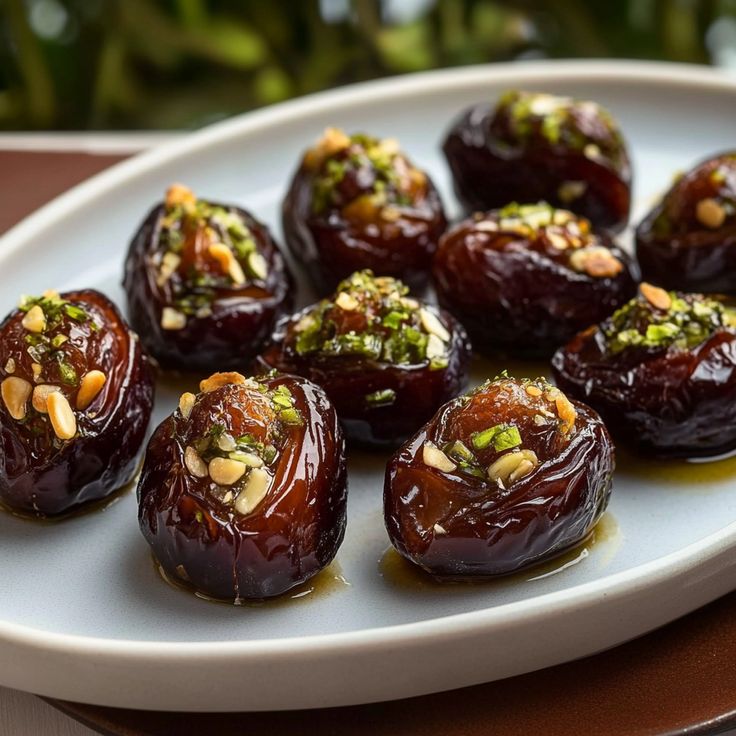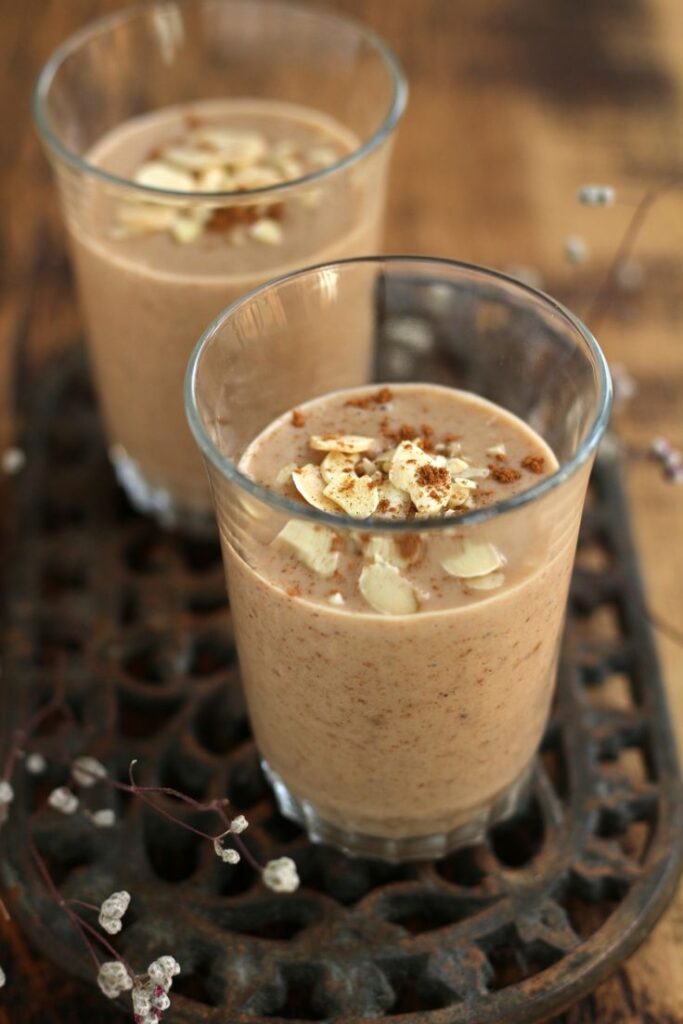Native to Morocco, Medjool dates are one of the hundreds of varieties of dates. Known as “the fruit of kings,” they have a sweet, caramel taste and chewy texture. Medjool dates were originally eaten by royalty and thought to fend off fatigue.
Research shows these ancient energy-boosting claims may be true. They’re also high in vitamins and nutrients that can contribute to other health benefits. Medjool dates are now grown in warm climates globally.
Dates are available at most supermarkets and are easy to include in your diet. They’re great as a snack, and their natural sweetness makes them a good substitute for sugar in the kitchen.
Medjool Date Nutrition
A serving of two Medjool dates contains:
- Calories: 110
- Protein: 1 gram
- Fat: 0 grams
- Carbohydrates: 31 grams
- Fiber: 3 grams
- Sugar: 27 grams
Medjool dates are a good source of:
- Selenium
- Magnesium
- Calcium
- Potassium
- Copper
Medjool dates are also an excellent source of phytonutrients, plant compounds that may have health benefits. Studies show they can stimulate the immune system, reduce inflammation, prevent DNA damage, and improve hormone regulation.
Health Benefits of Medjool Dates

Medjool dates are a great way to sweeten up your diet while adding vitamins and minerals.
Sweet snacks often have little nutritional value and are loaded with “empty calories” from sugar and fat. But Medjool dates’ high fiber content helps you feel fuller for longer, which can aid in weight management goals.
Medjool dates are still high in calories, so too many can be a bad thing.
Research has found that Medjool dates can offer additional health benefits such as:
Lower risk of heart disease
Medjool dates’ soluble fiber content lowers bad (LDL) cholesterol. Fiber binds with this cholesterol and prevents its absorption into your bloodstream. This keeps cholesterol’s fatty deposits from building up in your arteries, which reduces the risk of heart disease.
Studies show that soluble fiber may also help control blood sugar levels and reduce blood pressure.
Research suggests that the antioxidants in Medjool dates may reduce triglycerides, a fat found in your blood. High levels of triglycerides can increase your risk of heart disease.
Digestive function
Medjool dates also contain insoluble fiber, which is essential for healthy digestion. Eating enough insoluble fiber helps prevent constipation and inflammation in the digestive tract.
One study also found that insoluble fiber may help prevent colorectal cancer, but more research is needed.
Nervous system support
By weight, Medjool dates contain 50% more potassium than bananas. This essential mineral helps control heart rate, breathing, and muscular function. This benefit is particularly important because potassium deficiency is common as less than 2% of Americans meet the daily recommended value.
Low levels of potassium can cause muscle weakness, fatigue, and irregular or weakened heartbeat. Medjool dates can help you increase the potassium in your diet, supporting these nervous system functions.
Improved metabolism
The B vitamins in Medjool dates, such as pantothenic acid, folate, and niacin, help manage the metabolic processes that convert food to energy. Research shows this can help fight tiredness and fatigue.
Studies have also shown that dates may reduce sugar absorption in our bodies. This can help lower blood sugar levels, which can aid in weight management and reduce the risk of diabetes.
Potential Risks of Medjool Dates
The high levels of some nutrients in Medjool dates may cause problems for people with certain health conditions. Talk to your doctor to make sure that Medjool dates are a good addition to your diet.
Some potential health risks of Medjool dates include:
Weight gain
The fiber and nutrients in Medjool dates can help with weight management, but portion control is important. They are high in calories and should be consumed in moderation to avoid unwanted weight gain.
Kidney problems
Medjool dates are an excellent source of potassium, which is lacking in most people’s diets. Because potassium is processed in our kidneys, people with kidney disease should follow their doctor’s advice regarding how much potassium they should consume.
Allergies
Dried fruits often contain sulfites that act as a preservative and eliminate harmful bacteria. If you experience stomach pain, bloating, diarrhea, or skin rash after eating dried fruits, you may have an allergy or sensitivity to sulfites and should avoid eating Medjool dates.
Asthma
Sulfites in dried fruits may also worsen symptoms like wheezing for people with asthma
Deglet Vs. Medjool Dates
These are the two most common types of dates.
Deglet dates have more fiber than Medjool dates, at about 8 grams of fiber. Medjool dates, which are larger, lose some of their fiber as they ripen. They have about 6.5 grams of fiber.
Both of these types of dates are packed with sugar.
On average, dates have about 65 grams of sugar per 100 gram serving. The type of sugar in dates changes as they ripen. Younger dates, like the Deglet, have more sucrose. As they ripen, the sucrose changes into fructose and glucose.
Other Types of Dates
There are several types of dates, but you’ll mostly see two on the shelf at your local market: Deglet Noor and Medjool.
Other kinds include:
- Barhee
- Halawy
- Hayany
- Khadrawy
- Zahidi
Uses of Dates
Dates are a versatile fruit and can be found in a variety of forms including:
- Pitted
- Unpitted
- Dehydrated
- Diced
- Extruded, molded into specific shapes
- Macerated, soaked in liquid
Dates can be added to sweet treats or used to give something a sweet taste.
Dehydrated dates can be added to foods such as:
- Cereal and oats
- Pudding
- Ice cream and smoothies
- Bread
- Cake, cookies, and baked goods
- Candy
Dates can also be used to make:
- Juice
- Wine and beer
- Vinegar
- Sugar and syrup
- Paste and dip
- Food flavoring
How to eat dates


If those benefits sound convincing and you’re ready to give dates a try, you can eat them plain right out of the package. You can find fresh and dried dates in many grocery stores; the dried variety may even already be pitted and diced.
But you can also get a little more creative: Dates are versatile, lending themselves to sweet and savory preparations. Here are some ways to enjoy dates:
- Blend them into smoothies
- Chop them up and roll with nuts, oats, and nut butter to make energy balls
- Slice them open, fill with peanut butter, and top with a few dark chocolate chips for a take on a peanut butter cup that’s higher in nutrients and lower in added sugar
- Chop them up and toss them into salads, oatmeal, or yogurt
- Purée them into a paste and use the blended dates as a one-to-one sugar replacement in baked goods
In Conclusion
Dates are a healthy fruit to include in your diet.
They are high in several nutrients, fiber, and antioxidants, all of which may provide health benefits ranging from improved digestion to a reduced risk of disease.
There are several ways to add dates to your diet. One popular way to eat them is as a natural sweetener in various dishes. They also make a great snack.
It’s easiest to find dates in their dried form, though these are higher in calories than fresh fruit so it is important to eat them in moderation.
Dates are definitely worth adding to your diet, as they are both nutritious and delicious.
Just one thing
Try to add dates to one meal or snack this week. If you enjoy the addition, consider adding it to more meals and snacks moving forward.